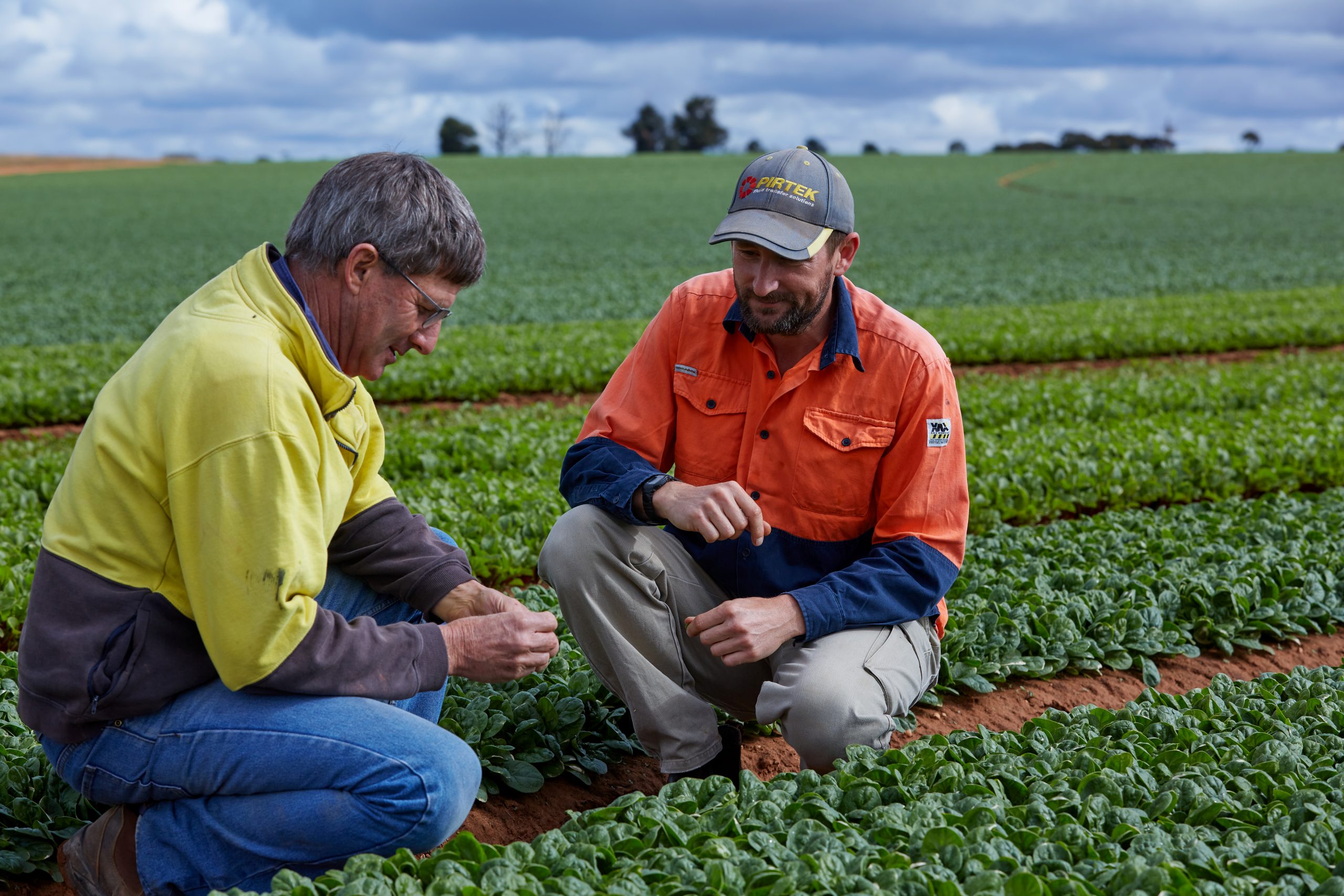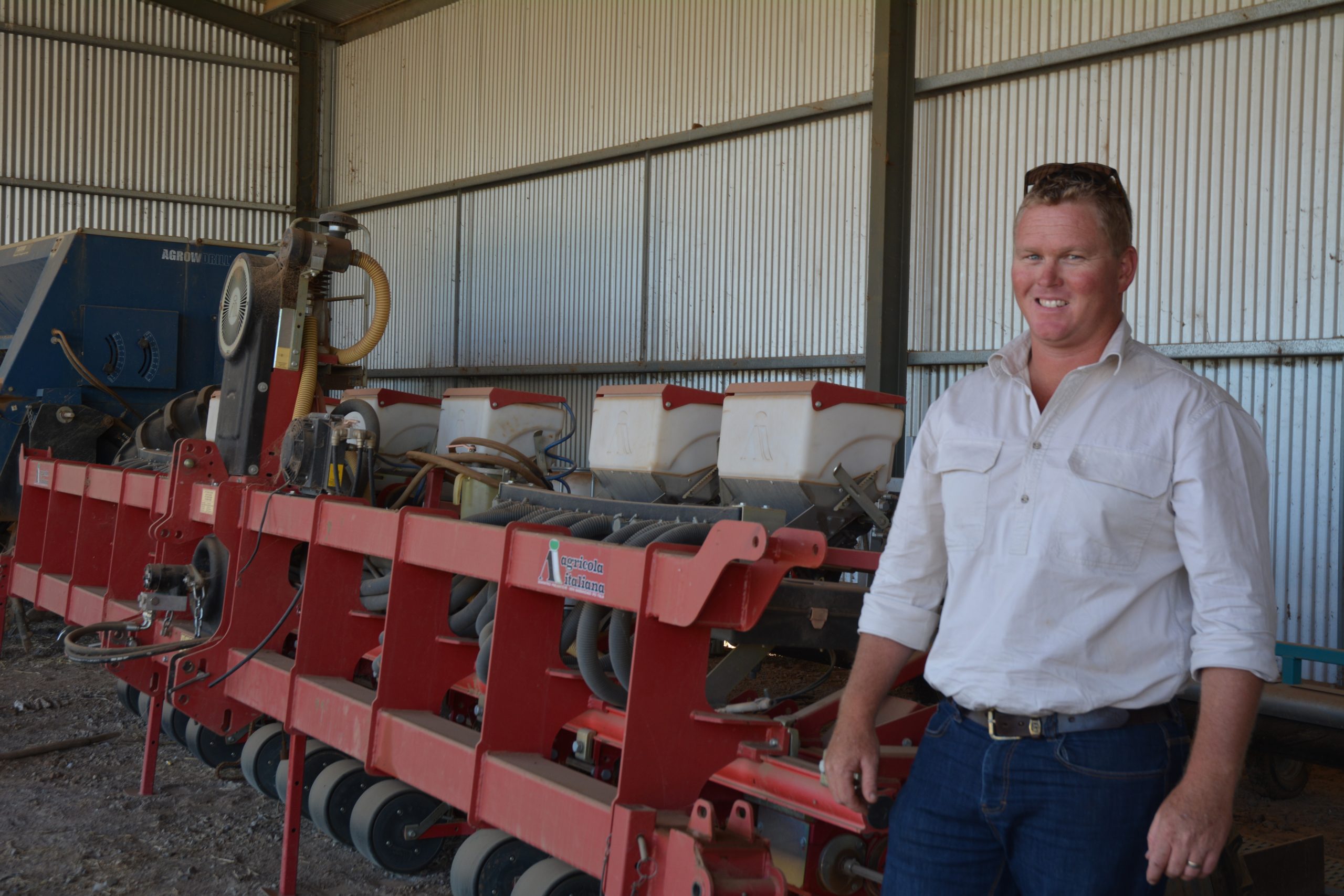
Juicy opportunities in New South Wales southern Riverina region
1 December 2020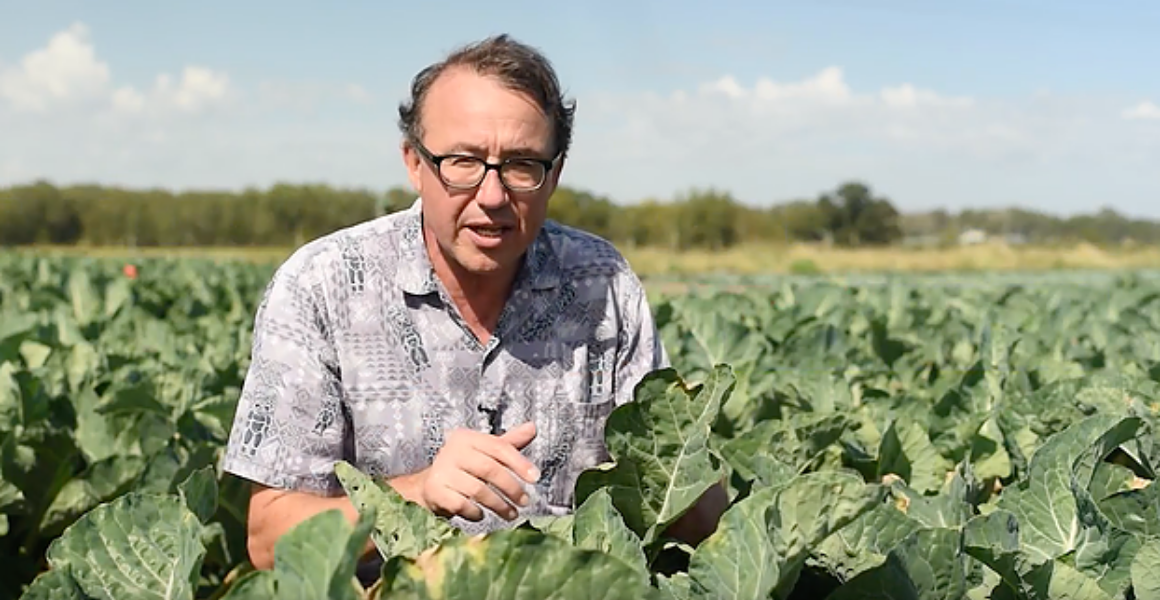
Webinar recording: Nutrition management and plant disease
1 December 2020The Young family has been growing vegetables in northern Victoria for over 60 years. In this edition, AUSVEG speaks to Carl Young about the Redgold growing operation, the challenges that are being faced, and the steps the business is taking to ensure it remains sustainable and profitable for generations to come.
Based in Wemen in Victoria’s Mallee region, the Young family has been growing produce since the 1950s.
It had humble beginnings, with newlyweds Allan and Audrey Young farming 50 acres of various crops being grown for the Melbourne market. Their couple’s son Andrew and his wife Eleanor joined the business in the late 1970s and took over the running of it in the 1990s. More recently, Andrew and Eleanor’s sons – Tim and Carl – joined the fold on a permanent basis in 2017.
The farm has evolved across the three generations. A range of crops have been grown over the past 60-plus years, including lettuce, carrots, potatoes, broccoli, cucumbers, pumpkins, melons and sweet corn.
Redgold now specialises in the winter supply of leafy green baby salads, along with head iceberg and cos lettuce. It has developed long-standing relationships with processing companies and supplies them on a contract basis. During summertime, the operation grows cover crops to prepare for the next season and give its staff a well-deserved break.
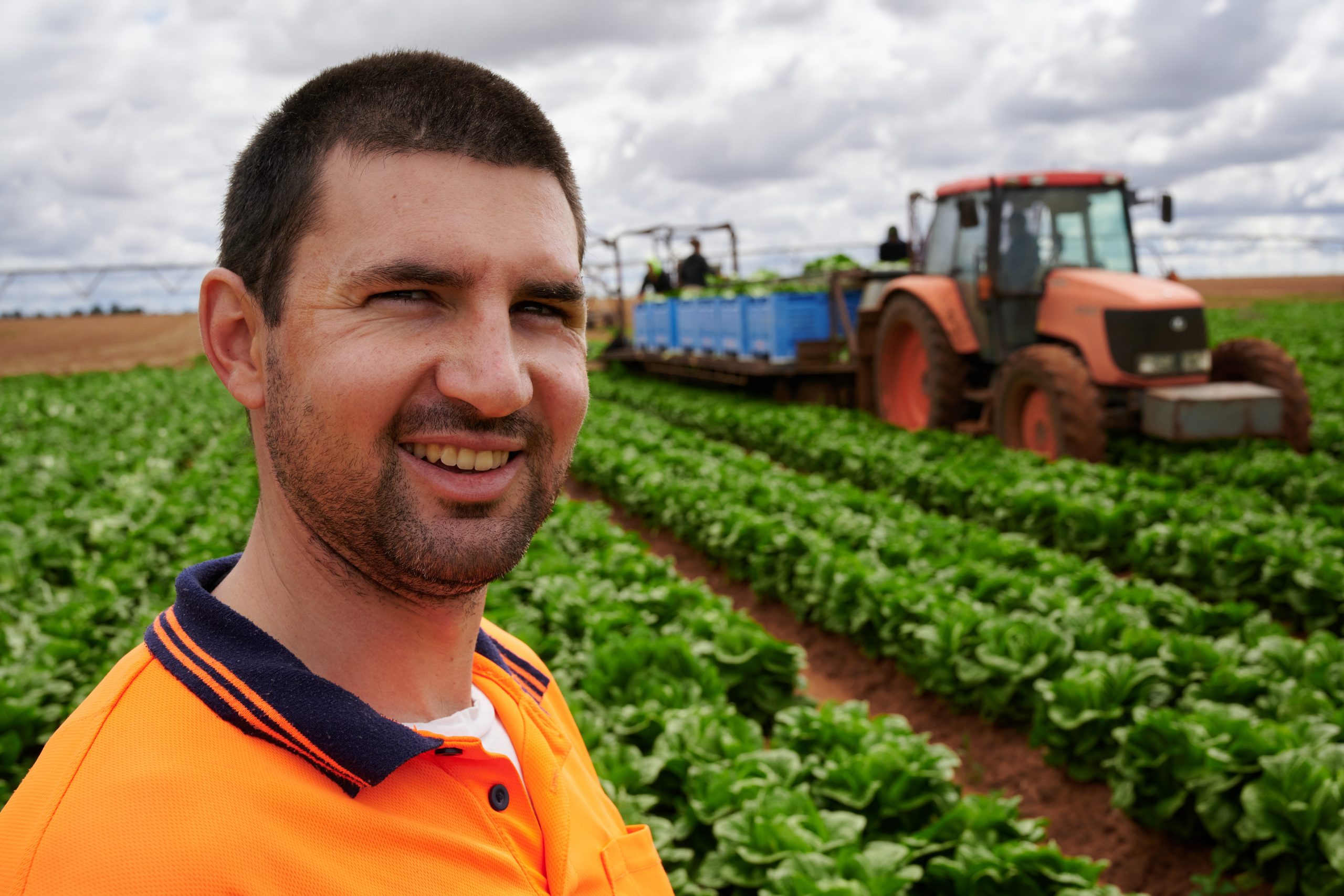
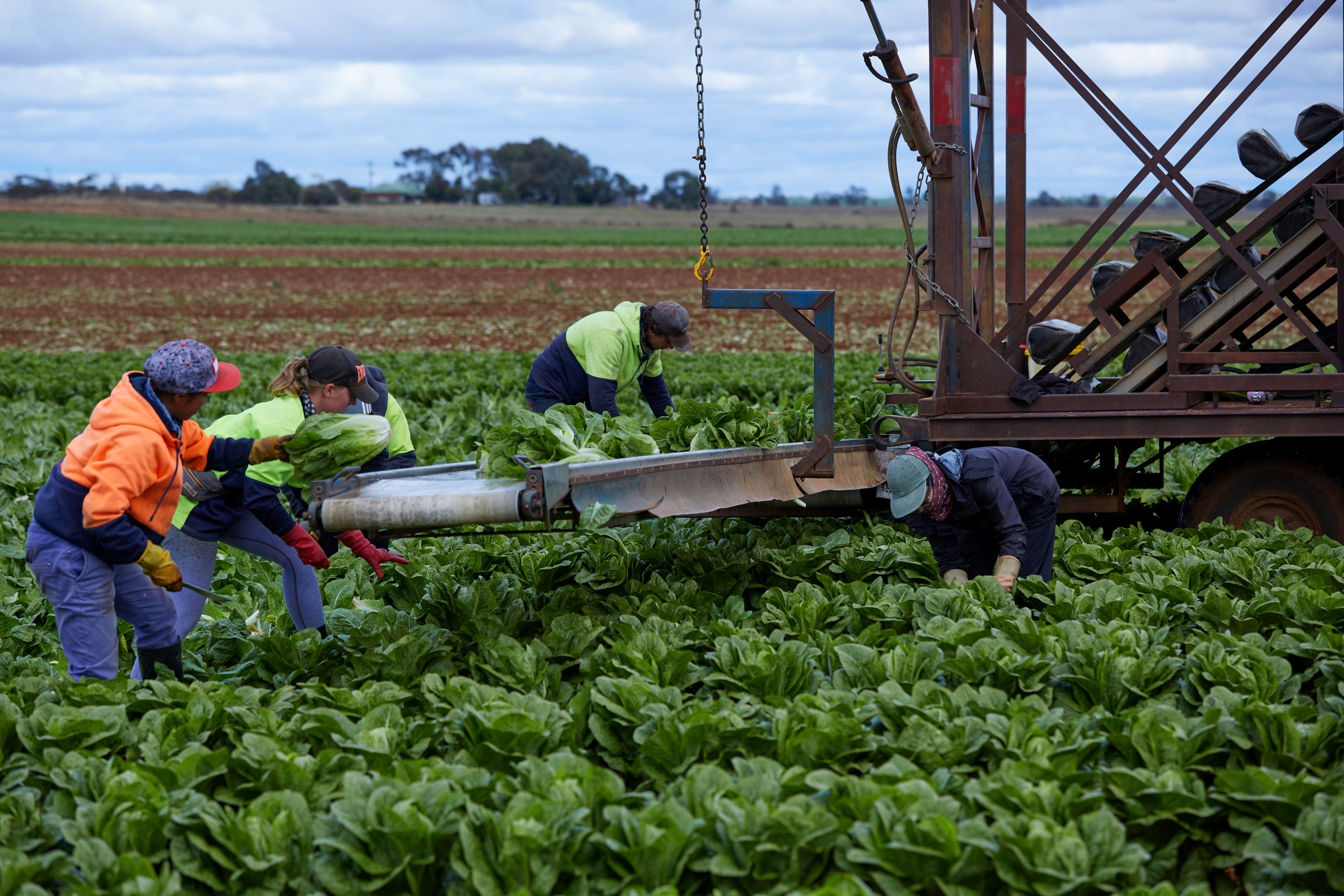
Facing challenges
An immediate concern for the horticulture industry is labour, and Redgold is addressing this as the COVID-19 pandemic continues.
“The potential lack of manual laborers due to the pandemic is concerning as we begin to look towards next year’s harvest season,” Carl says.
“However, we have been fortunate this season given the interstate travel restrictions as there have been good numbers of backpackers remain within rural Victoria looking for work. We employed separation tactics between staff with harvest, transport and accommodation, which worked quite well – no doubt there was some luck involved too though. We hope other farmers are able to source employees this summer.”
Redgold also recognises that the water market is becoming more competitive due to catchments yielding less run-off. Simultaneously, new tree and vine plantations are booming throughout the region and these are both factors driving water prices higher.
“We think that wider and more opportune soil rotation and alternate irrigation methods will be important factors in the future regarding managing potential water supply issues and maximising yield on a water usage basis,” Carl says.
Another challenge identified by Redgold is the increasing reliance the vegetable industry has on plastic.
“Consumers are becoming increasingly aware of the issue, and unfortunately Australia’s recycling system currently does not amount to not much more than a token gesture,” Carl says.
“Food safety, shelf life and contamination management are imperative, however we do not want to be over investing in unsavoury systems that may soon become shunned by consumers. There are always ways to manage issues, but this one is going to take some imagination and persistence.
“As seasonal producers, growing through increasingly severe heat, heavy frosts and Mallee dust storms makes the task of producing fast-growing vegetables with the uniform quality and volumes that our customers demand a challenge, but that is all a part of the fun of farming,” Carl adds.
"Food safety, shelf life and contamination management are imperative, however we do not want to be over investing in unsavoury systems that may soon become shunned by consumers."
Adapting for the future
Redgold acknowledges that the global economic environment is changing and recognises the need to reduce greenhouse gas emissions.
“We feel pretty confident that a price on carbon will be applied to our industry in the future, whether it’s via a tax or another mechanism. For that reason, Redgold is in the process of becoming Climate Active-certified, meaning our business’s operations will be carbon neutral,” Carl says.
“We think understanding where our emissions are coming from now will prove to be a good business decision. It will mean we can stem the emissions from those sources in the most economical way possible, before the cost of emitting becomes prohibitive. It will also offer insight into which direction our industry needs to head, and how we might get there.”
Carl encourages other businesses in the industry to plan ahead and act now to reduce their greenhouse gas emissions.
“There will be winners and losers with a changing climate and economy, so the more we internalise and digest the reality of what needs to be achieved, the better our odds of continuing the Australian legacy of delivering high-quality food and fibre,” Carl says.
“While there is a void in the economic framework to support a healthy transition to a low-carbon future, it is essential that growers take steps now to ensure they can remain competitive in coming years.”
The operation is also looking to reduce its reliance on pesticides by investing more time in improving and diversifying the genetics it uses.
“We are interested in some novel approaches in weed control, which is a major issue and hope they can add more options to our weed management tool kit,” Carl says.
Despite its ongoing challenges, the Young family and the wider Redgold operation is passionate about vegetable growing and the results it produces.
“Vegetable growing is fast-paced and quite social; we cross paths with people from a wide range of backgrounds – from travelling workers to professionals in food, technology, science, agriculture and everyone in-between,” Carl says.
“While some aspects of the job can make you want to pull your hair out, it’s also very pleasing to see quality crops coming efficiently through the shed.”
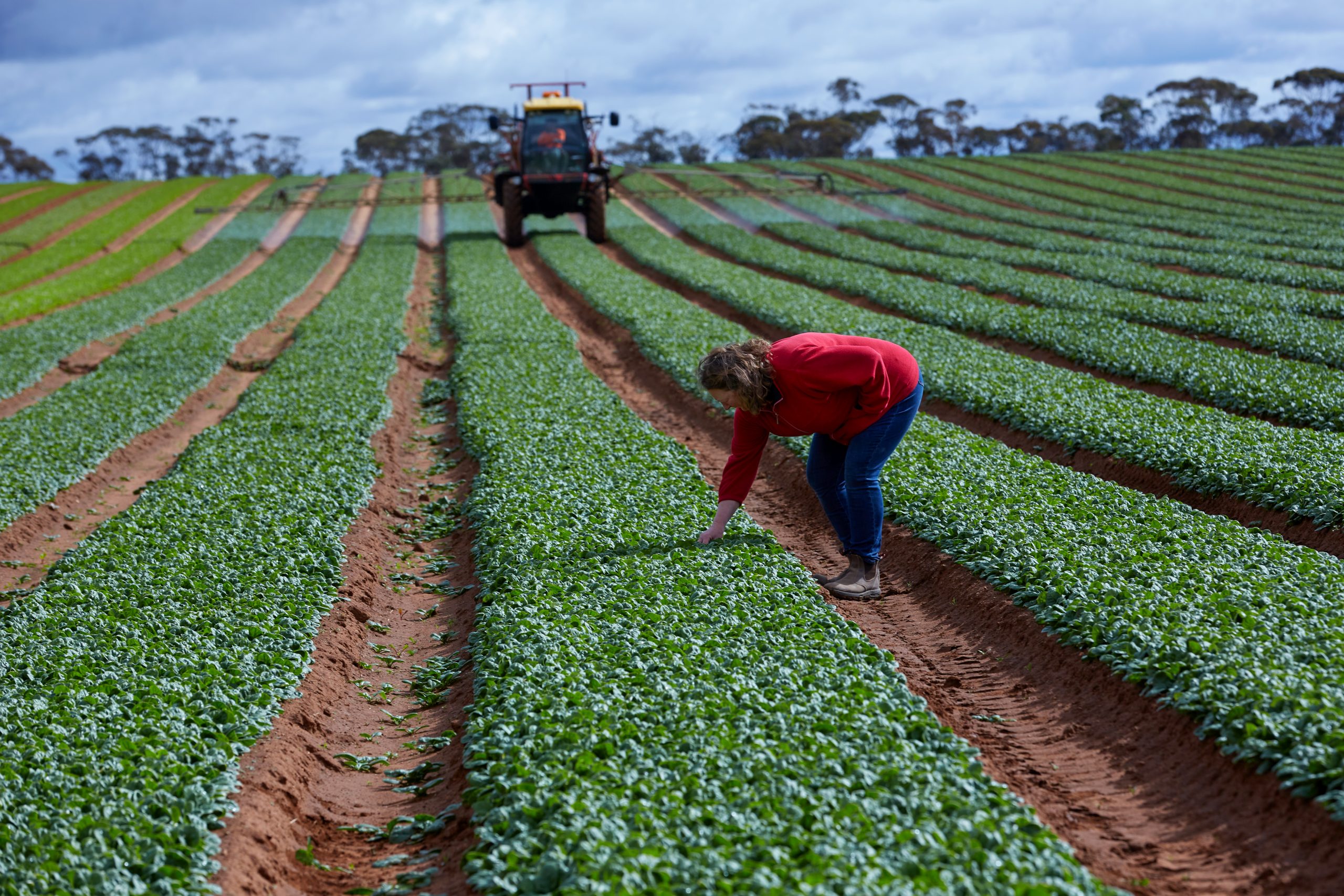
Striving to achieve
The Redgold operation aims to be consistent suppliers of quality products and Carl says to do that, “we need to learn from our mistakes”.
“Often the difference between good and poor yield and quality comes down to subtle differences in growing conditions or management,” he says.
“We are investing more time in developing metrics, collecting data and learning about critical timeframes, application rates, soil amendment products, methods, temperatures and varieties. This is becoming super important as product specifications and consistency of supply become increasingly stringent for leafy salads.”
Technology that assists in understanding disease and nutrition management has made incredible progress over the years.
“We are fortunate to have access to some of these world-leading techniques to help guide our decision making around rotation, chemical, varietal and fertiliser use,” Carl says.
Redgold has also travelled abroad for inspiration, with Carl attending the 2018 International Spinach Conference. This was part of Vegetable knowledge transfer at the 2018 International Spinach Conference (VG17004), a strategic levy investment under the Hort Innovation Vegetable Fund.
“Developing connections with people within the Australian vegetable industry, and establishing common issues and learning from others on the trip was invaluable,” Carl says about the study tour.
“While on the tour, there were a few varieties we saw that we were able to request back in Australia. We also saw a harvesting aid that has played a role in current developmental plans.”
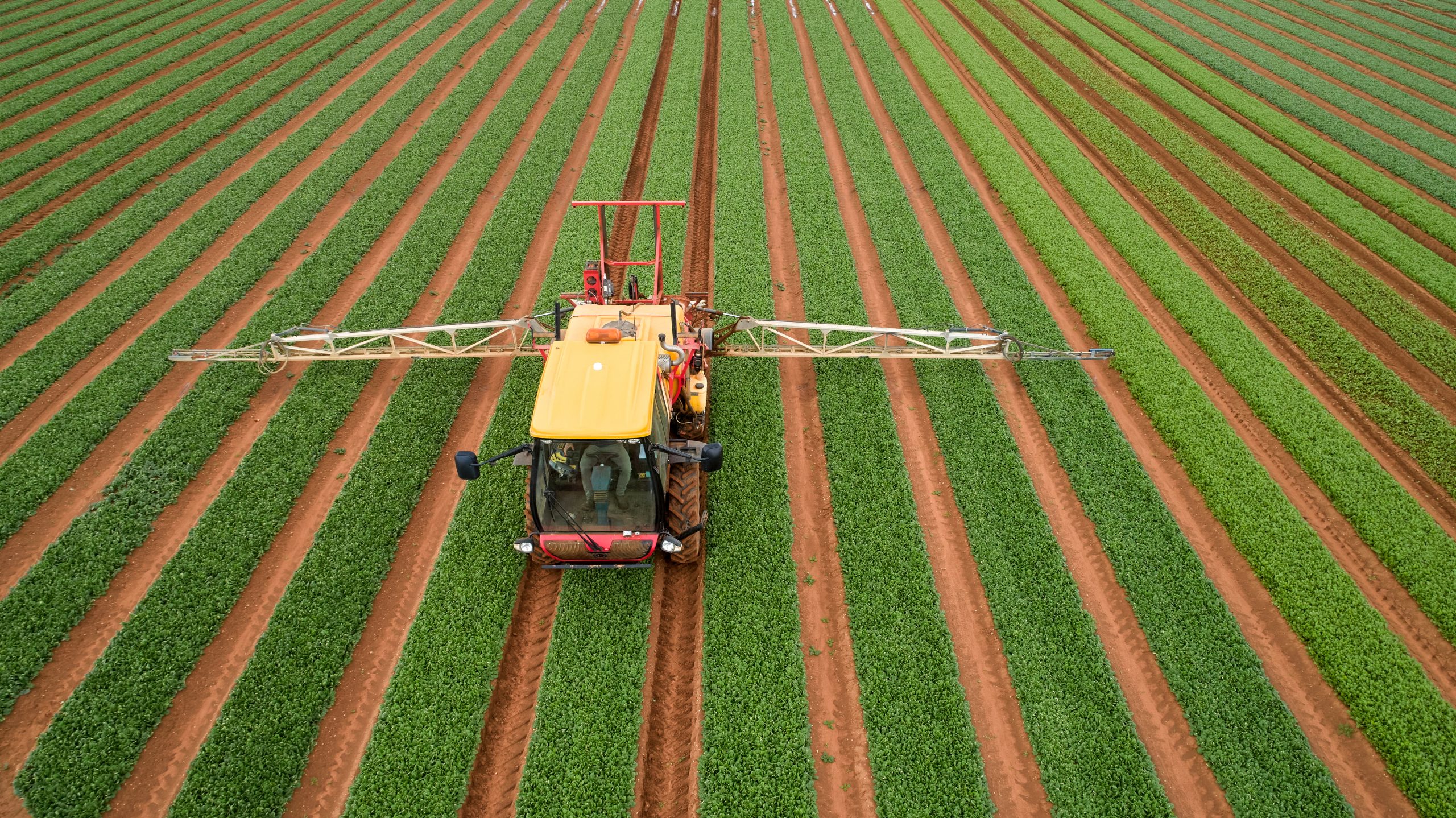
Meet the people behind the Redgold operation
Redgold employs 10 permanent staff and a seasonal backpacker workforce of around 30.
The current employees are:
- Eleanor Young – books, dispatch and director.
- Andrew Young – customer relations, staff and harvest management, director and has a keen interest in workshop projects.
- Tim Young – tech, data, research and development and system implementation.
- Carl Young – crop planning and field management.
- Josh McGown – pesticide and irrigation management.
- Dan Sandy – logistics, receivals and dispatch management.
- Sylvia McGown – management of harvest quality and forecasting.
There are also three staff working in maintenance and fabrication, operators and visiting agronomists.
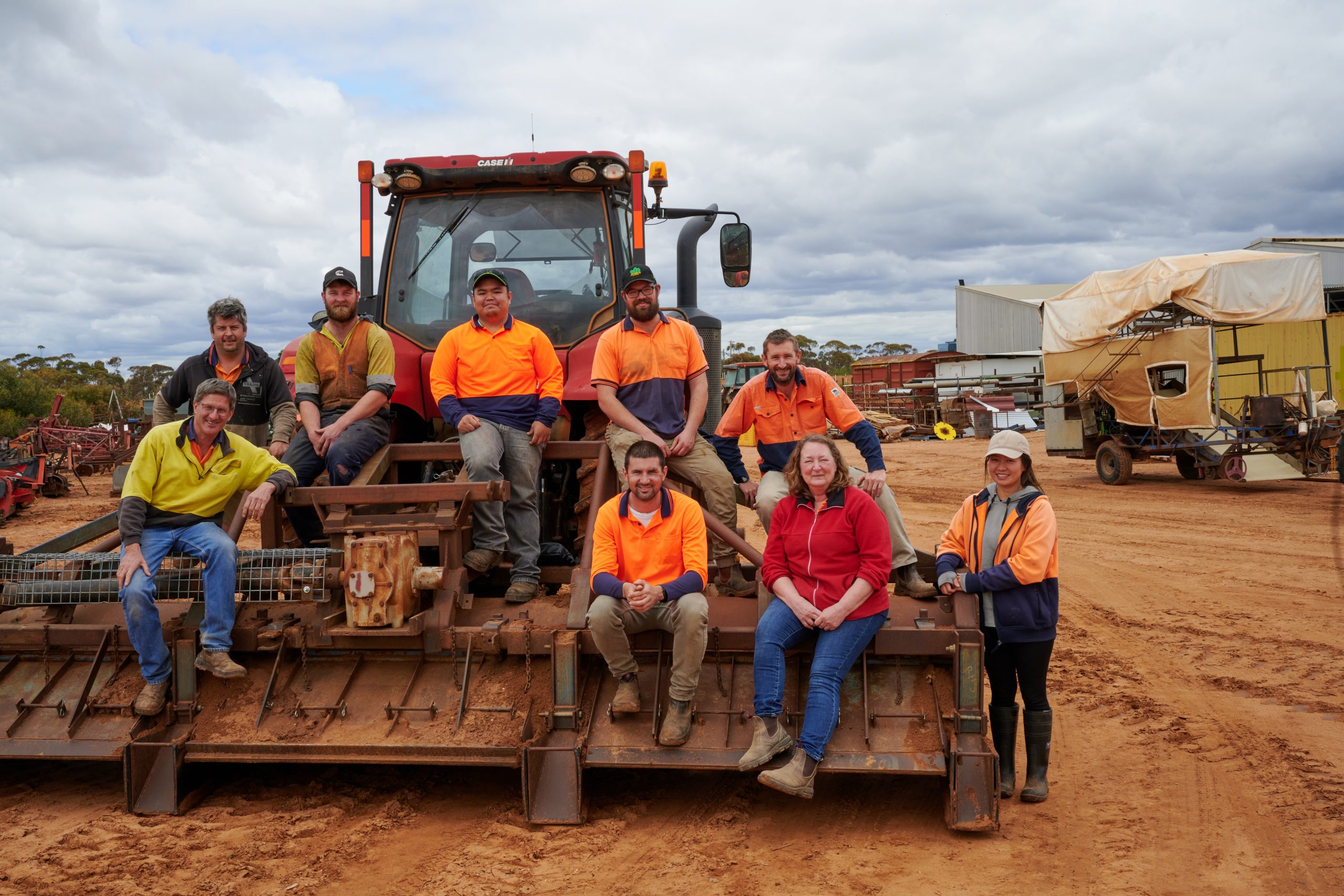
This grower profile first appeared in the leading magazine for the Australian vegetable industry, Vegetables Australia. If you’d like to subscribe to receive a new edition of Vegetables Australia in your mailbox every three months, use our online subscription form!
Photography credit: Excitations.

